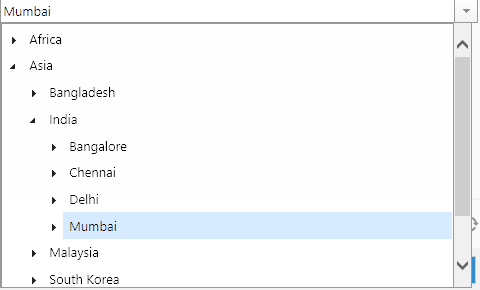Creating an object-based hierarchy
This example describes a scenario where a construction company wants to use a single hierarchically ordered list of values for three separate properties referring to the location of a construction site. They want the hierarchical value list to be based on actual objects in their vault.
To create the required metadata structure and objects for this kind of scenario, follow the steps provided below. The names of the structure elements are examples only, and you can freely name them as you like.
First, open M-Files Admin and create the required metadata structure elements as instructed below.
Next, open M-Files Desktop or M-Files Web and create a hierarchy of continent, country, and city objects.
- Hierarchies
- Construction site continent
- Hierarchy Name = Construction site continent
- Target Property = Construction site continent
- Hierarchy Property = Belongs to area
- Construction site country
- Hierarchy Name = Construction site country
- Target Property = Construction site country
- Hierarchy Property = Belongs to area
- Construction site city
- Hierarchy Name = Construction site city
- Target Property = Construction site city
- Hierarchy Property = Belongs to area
- Construction site continent

An example of a hierarchical, object-based value list.